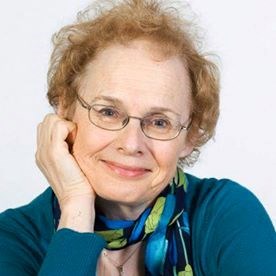When German theologian Martin Luther nailed his 95 theses to the doors of All Saints Church in Wittenburg, Germany in October 1517, he would probably have been amazed if he’d known that the Christian world would still be talking about him today and the radical change that Christianity has undergone since then. This year marks the 500th year of this event, which revolutionized Christians to rethink their relationship to God.
Luther was not the only reformer at the time, but his courageous stand, along with leading lights such as the Englishman William Tyndale, inspires appreciation and respect. Perhaps the most important thing these reformers saw was the need for the Bible to be translated from Latin and Greek - which many did not read - to a common language of the people.
Why was this so important? Because at the heart of this change was their desire for everyone to know and understand God through “the Word” and Jesus, the Christ, through his own words and works. At that time, people were told God was distant and to be feared and the Word could only be interpreted by a religious figure. Once people could read the Bible themselves, some began to glimpse God as something more - including as Love - and to want a direct relationship with the Divine.
Thinking about this, I wondered: What if we saw the Reformation not just as an historical event but also as an everyday opportunity to reform the way we understand the nature of God and our relationship to the Divine?
Then, I realized that this described exactly my own experience. As a teen I attended a strict Christian boarding school that tended to teach God as a distant deity to be obeyed and feared. The words in the Bible felt irrelevant to my busy life and as distant and as incomprehensible as those Greek and Latin passages Luther and Tyndale fought to put into common languages. I left school and the��Bible simultaneously. ��
But in my twenties, I found myself turning again to the Bible. What prompted this was a statement from Christian reformer Mary Baker Eddy near the beginning of her seminal work, Science and Health with Key to the Scriptures, published in 1875.
“God is Love. ��More than this we cannot ask, higher we cannot look, farther we cannot go.”
It was such a simple, yet profound, statement, highlighting the words of St John. Her book inspired me to look for the threads of this infinite sense of divine Love in the Bible. There, through the teachings and healings of Jesus, I found a new, more relevant view of God and God’s creation.
This was the beginning of a renewed relationship with God. It had a profound healing effect at a time when I was struggling with self-criticism. Turning daily to Jesus’s teachings, I began to see myself as a Child of God, and to know God as Love. For the first time I felt divinely, unconditionally loved. It was a radical reformation of how I saw God and myself. As this happened the self-criticism receded and my life improved in so many ways.
The Reformation is known mostly as a historical time period in Christianity. But, it can also be a daily, deepening of our understanding of God that brings relevance and healing. And, recognizing that stirs us to be grateful to the great men and women throughout time who have had the courage to speak up, to even risk their lives, so that we today have the opportunity to better understand God. ��
 Anna Bowness-Park is a Christian Science practitioner, who writes frequently on the relationship between consciousness and health, and how prayer can play a role. You can follow her blog at��
Anna Bowness-Park is a Christian Science practitioner, who writes frequently on the relationship between consciousness and health, and how prayer can play a role. You can follow her blog at��
You can read more articles from our interfaith blog, Spiritually Speaking,��
* This article was published in the print edition of the Times 91ԭ�� on Saturday August 12 2017


